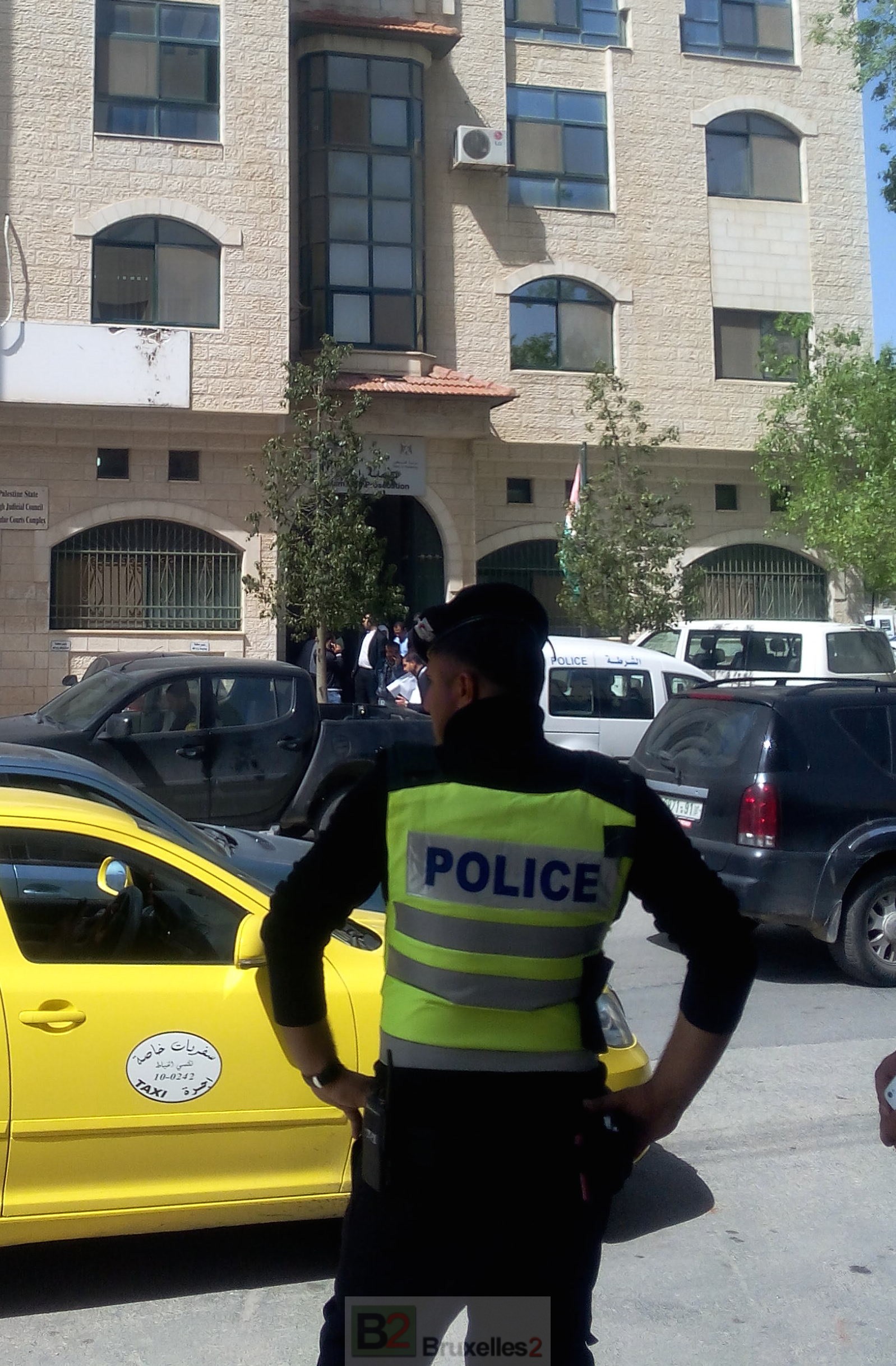The three challenges of Palestinian justice
 (BRUSSELS2 to Ramallah) Palestinian justice is faced with three main challenges as detailed by the head of the Palestinian Authority's Justice Department, Ali Muhanna (President of the Palestinian High Council of Justice).
(BRUSSELS2 to Ramallah) Palestinian justice is faced with three main challenges as detailed by the head of the Palestinian Authority's Justice Department, Ali Muhanna (President of the Palestinian High Council of Justice).
1st challenge: military control and checkpoints
“It's not just a military occupation, it's to the detriment of our institutions for justice. I come from Jericho. And with the checkpoint, I couldn't go in time. This is the case for many judges – such as lawyers or parties – who cannot be in court in time. Many criminals cannot be prosecuted because they flee to Area C or Israel. The military occupation makes it impossible to prosecute criminals who have Israeli identity cards. »
2e challenge: money
“The judges have not received their salaries for the past four months because Israel has not sent the money to the Palestinian Authority. The military occupation is the main challenge we face. The second challenge is the very low amount of resources we have, whether for the number of judges, administrative staff or courts, really when you look at the Jordanian model, we have 50% of what we should have (200 judges against 400 judges and 900 administrative staff against 1800 staff). The salaries of judges are really low when you look at their duties. The salary of a Supreme Court judge is $3000 a year. This reflects negatively on judgments. »
Last challenge: lois
“Many of the laws date from the previous period, under Jordan (before 1976). We continue to apply the Ottoman code dating back to the 1800s. We have no civil law. Many of the laws applicable in Gaza date from the period of British occupation, the British mandate criminal code enacted in 1936. And we continue to apply orders issued by the military authorities. Such varieties of laws cause difficulties for the justice sector. Since the Palestinian Legislative Council is not in session, this further reduces the possibility of seeing new laws. Another challenge: the file management system is obsolete, very old. We are trying to introduce a timeline to reduce the processing time for files. We try as much as possible to provide access to justice for the Palestinians, to protect human dignity and human rights”.
" The Sharia has its own courts, which are not dependent on the Judicial Council. Sharia is one of the sources of our legislation but is not compulsory. We consider our laws to be civil laws and not religious laws. For example, the law would not allow women to become judges but now 21% of women are judges. We even have women who are Sharia judges. It is a development of the mentality. These courts have jurisdiction over personal matters (marriage, divorce, inheritance, etc.). »
NB: the Judicial Council brings together the civil, criminal, administrative and constitutional jurisdictions. In the absence of a Constitutional Court, the Supreme Court performs this function. The Sharia has its own council.
(Nicolas Gros-Verheyde)


